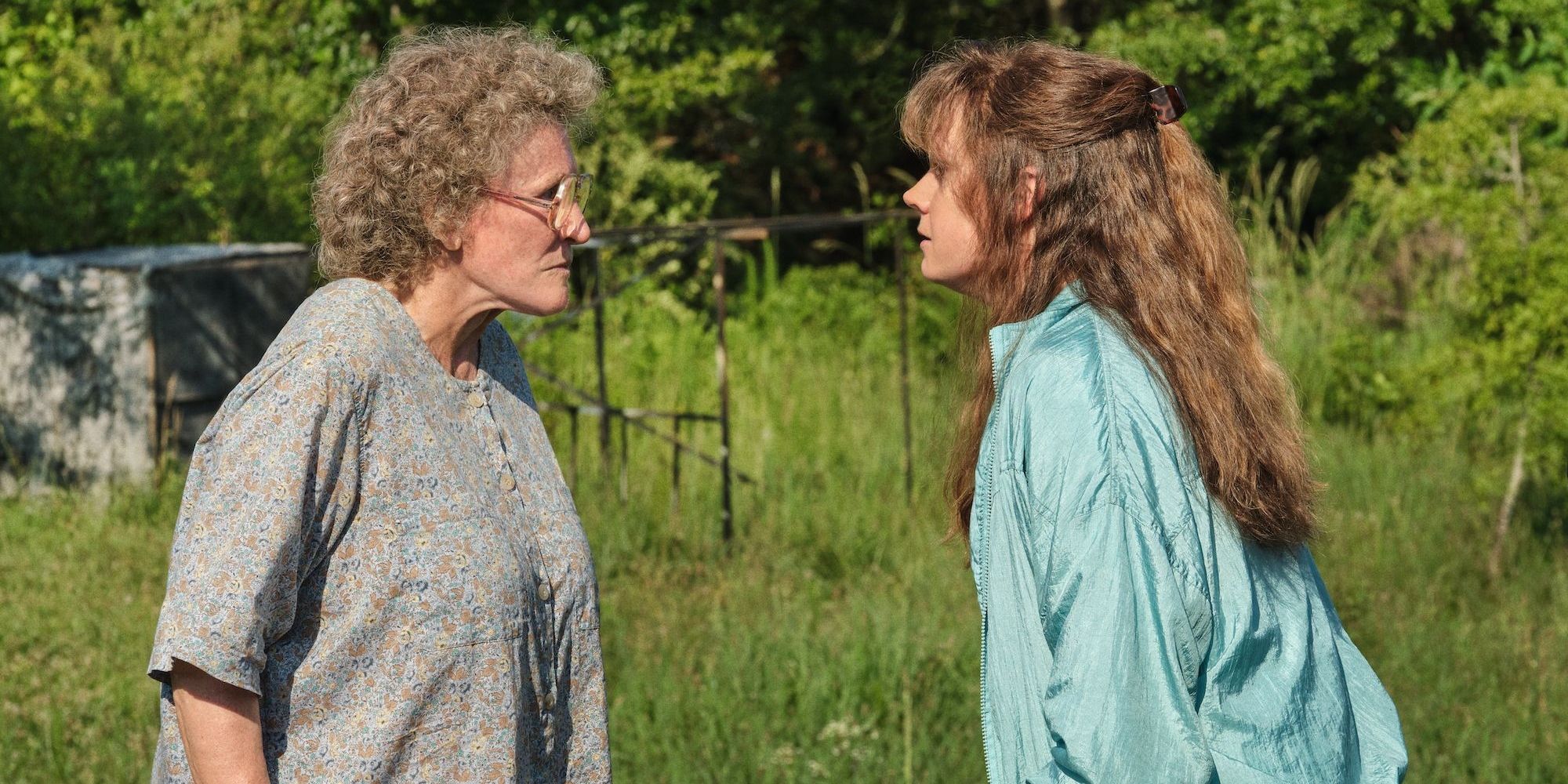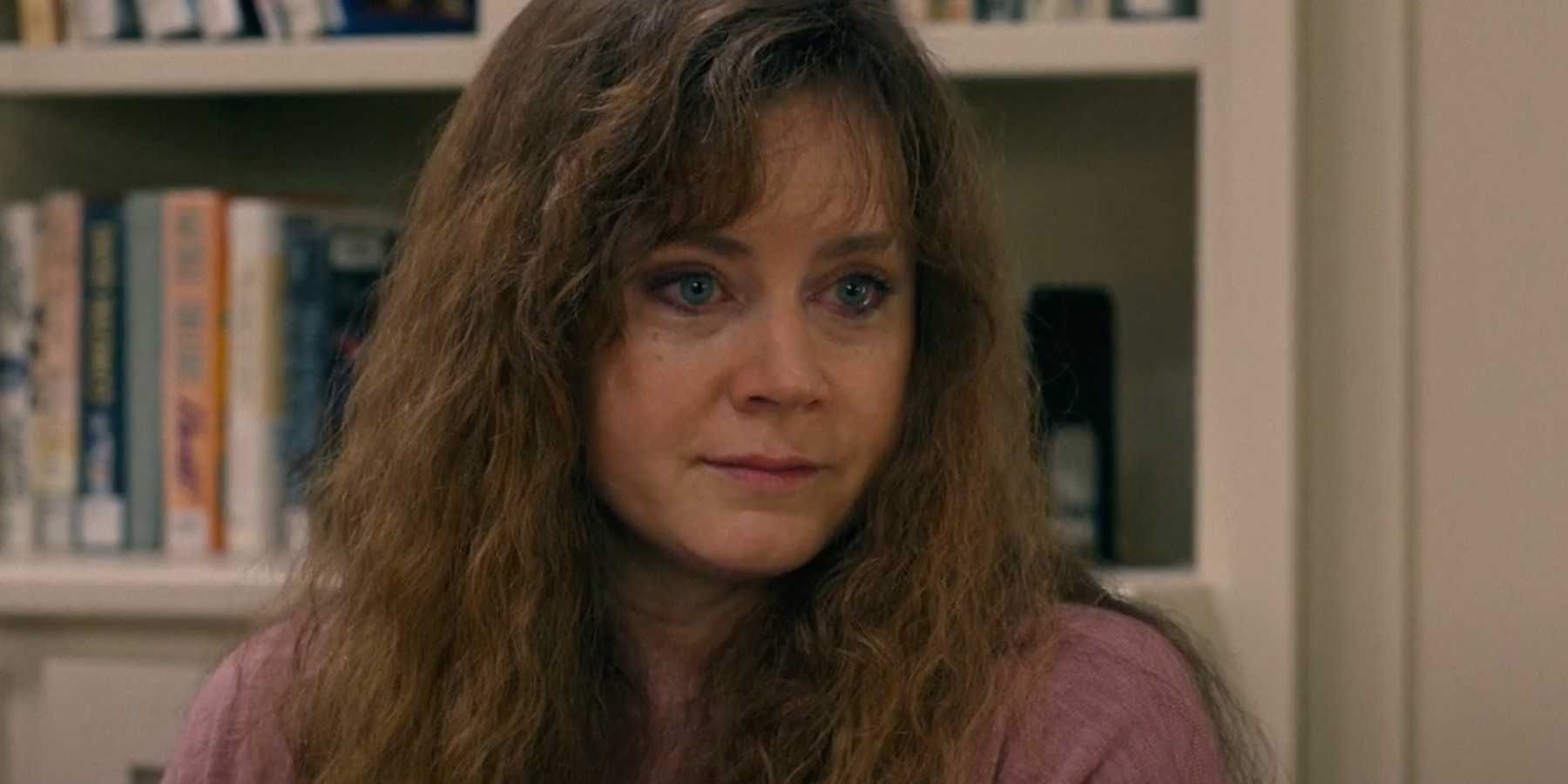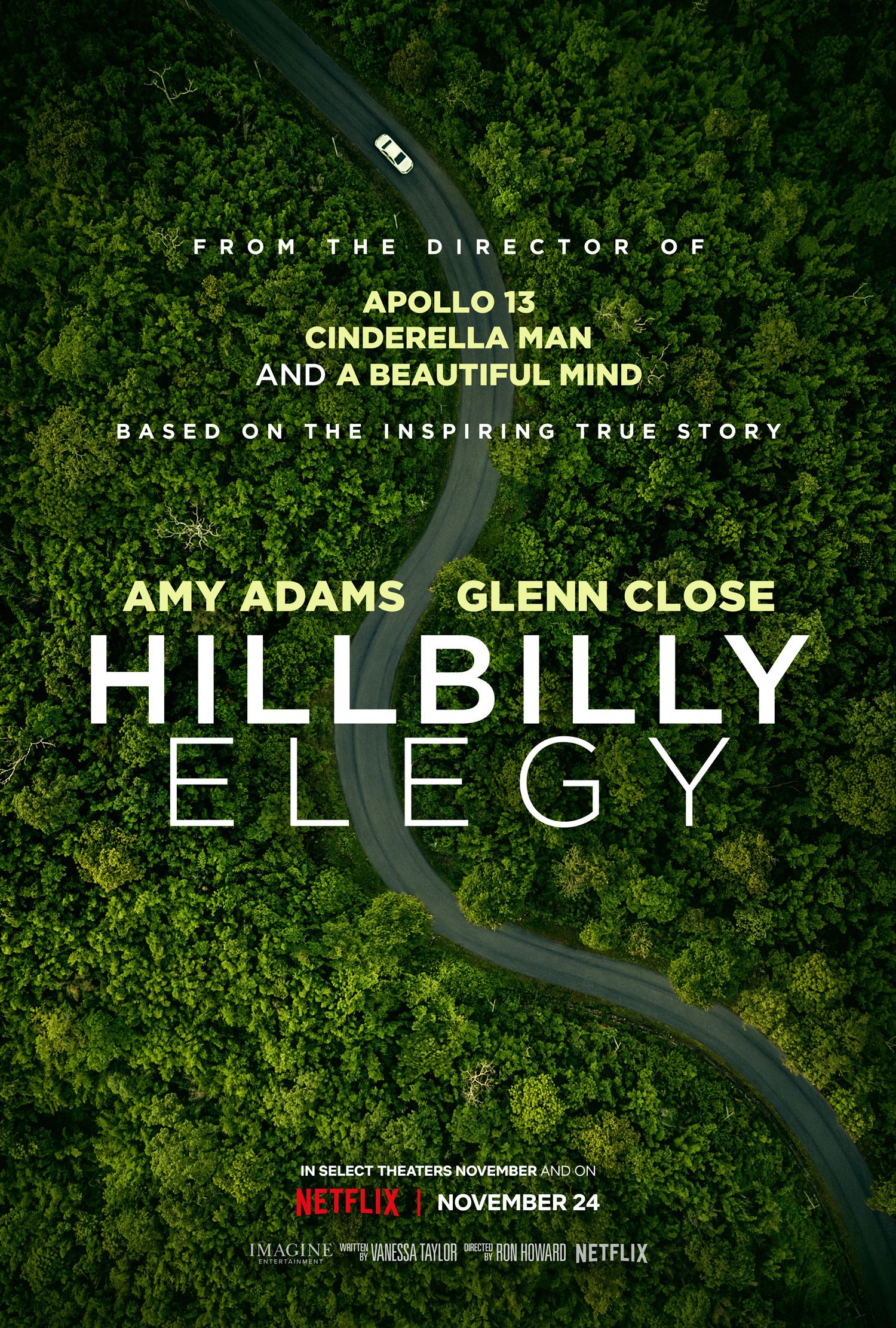Director Ron Howard's new film, Hillbilly Elegy, which stars Amy Adams, Glenn Close, and Haley Bennett, is getting resoundingly negative early reviews. An adaptation of the memoir by J.D. Vance, the film was seen as an early contender for several awards in the 2021 season. The movie, like the book it's based on, tackles sociopolitical themes of class and the opioid epidemic.
Following the author of the book from childhood to adulthood, the film tackles the cliched American narrative of someone pulling themselves up by their bootstraps. Vance is played by both Owen Asztalos (as a child) and Gabriel Basso (as an adult). Hillbilly Elegy follows him as he goes from growing up in the heart of Appalachia to becoming a venture capitalist. All the while, he battles the trauma his mother's addiction inflicted on him.
With reviews flooding in this morning, what many saw as a surefire win for Howard and Co. is clearly not what transpired. Many critics point out in their reviews Hillbilly Elegy misses the mark on multiple levels, from an adaptation standpoint to merely miscalculating the poignancy of cliched plot points. Check out some of the critics' thoughts below:
David Ehrlich, IndieWire
...it isn’t just dramatically unsatisfying in the extreme, but also on the verge of sociopathic. For all of the favors that Howard does to the subject of his biopic, the director can only do so much to disguise the self-serving nature of a story that was always less about where Vance came from than it was about where he wanted to go.
Peter Bradshaw, The Guardian
The book’s subtitle is A Memoir of a Family and Culture in Crisis. Howard erases the critical sense of “crisis” that made the original book a success in political circles. The deadbeat world JD escaped is now regarded more sentimentally... This is a well-meant story of someone pulling himself up by his bootstraps, with some help from his grandma. But it feels contrived and self-conscious.
Brian Truitt, USA Today
“Elegy” brings up but only barely touches – mainly through Mamaw's protective nature – the tight-knit nature and code of J.D.’s people from the “hill country,” a forgotten aspect that, if explored more, would have boosted the overall narrative. Without a truly distinguishing “Hillbilly” charm, it’s simply a middling dysfunctional family drama with A-list actresses.
Owen Gleiberman, Variety
Gabriel Basso’s J.D., on the other hand, is so wholesomely likable that the fate of his soul never seems at stake. His people may be haunted by the demons of Appalachia, but he comes off as a yuppie whose life has boiled down to: Will those demons stand in the way of my career path? Not if he won’t let them they won’t. That isn’t quite drama — it’s feel-good therapy.
Richard Lawson, Vanity Fair
Many adolescents experience a similar revulsion toward their own families, only to soften as they get older and realize the limits of absolutism. But fostering a complicated moral dimension like that would require Hillbilly Elegy to actually think, and this movie is uneager to do that—or for us to do so... This is prestige bait that uses an awfully rusty lure, tossed with careless pride from its ship of Hollywood fools.
Alissa Wilkinson, Vox
Hillbilly Elegy seems like a movie with huge aspirations — a work of art that wants to reveal something to the audience, like Winter’s Bone, or Minding the Gap, or the upcoming Nomadland. It does nothing of the sort. It’s just a movie about the hardships of poor people, and one kid who made good because he tried hard. It lacks any thoughtful sense of why J.D. succeeded where others have not, and how, and what it means, and whether there’s some reason beyond laziness that any given family might struggle.
Terri White, Empire Magazine
Here’s the frustration: this, with the most excellent of Hollywood talent attached, could have been a film that did and said so much more. About the opioid crisis in America, about the lifelong impact of poverty, about the severe intergenerational effects of trauma. It could have told its story with heart and heft and humanity. That could have been the legacy.
Much criticism has been leveled against both Vance and the memoir for its portrayal of the Appalachia region, with many questioning Vance's politics and the role they played in shaping the narrative. Many feared he hewed too closely to cliched representations of rural Americans, and it seems many critics feel the film reflects that. While much praise is given to Close's portrayal as the matriarch of the family, less is given to Adams as the mother of J.D. because of how little she was given to work with. It seems as if even great performances, no matter how limited, aren't enough to save Hillbilly Elegy.
What's most interesting about the massive failure of the film is what it means for the 2021 awards season. While it is not unheard of for a movie with negative reviews to still earn nominations for its performers, only time will tell if Adams and Close will enter the race. While both surely deserve (multiple) wins from the Oscars and other awards bodies, Hillbilly Elegy probably won't be the one to do it. Additionally, with Howard and the film potentially no longer in contention for directing awards or awards for best picture, that opens the door for many of the acclaimed indie films that were released earlier this year to sneak their way in. One thing is for sure: the 2021 awards season is going to look like no other and, with the panning of Hillbilly Elegy, one more typical Oscar bait movie has slipped through the cracks.
Source: Various [see links above]



